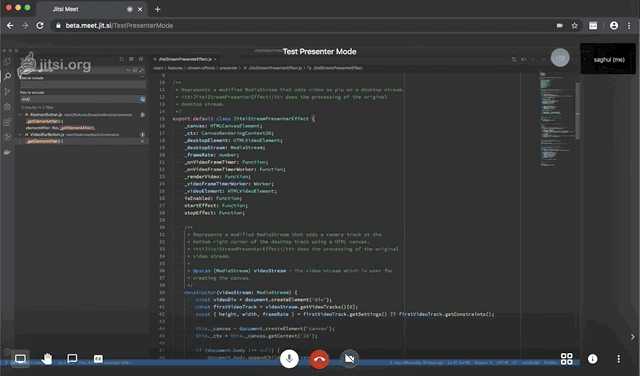
Now that we all have to work from home during the corona crisis, the use of programs such as Zoom and Microsoft Teams is increasing rapidly. However, these are not always the most stable, fast or safe methods of meeting. Jitsi, an open source project, can improve your calls on all those points.
Whether you call your grandmother because you are no longer allowed to visit or meet online because the office is closed, everyone is looking for a reliable and safe method to show their face. Whatsapp, Skype and FaceTime are the most commonly used methods to call family and friends. These applications are often already on the computer, phone or tablet and are therefore obvious to use. Unfortunately, the sound and video quality is often so disappointing that your hearing-impaired parents no longer understand it. Companies nowadays use Zoom and Microsoft Teams en masse, but if you value privacy and security, they don’t seem like good options anymore. Zoom in particular has come under frequent scrutiny recently for the security concerns surrounding video calls.
Fortunately, there are plenty of alternatives that not only offer better quality, but can also better guarantee your privacy. An example of such an alternative is Jitsi. The software is free and open source, which means anyone can check the program’s code for errors and backdoors.
Unlike most other alternatives, Jitsi does not bundle the video and audio signals before the server forwards it to the other participants. Instead, all signals are sent directly to all participants, with a faster and more stable result. In addition, that also has an advantage if you host Jitsi yourself (more about that later), because it relieves the servers, making it easier to use the program on a large scale within a company.
All platforms
It doesn’t matter which computer or phone you use for your meetings or conversations, because Jitsi supports almost everything. There is a web version of Jitsi Meet that you can use in your browser, but there are also applications available for Windows, OSX, iOS, Android and even Ubuntu or Debian. No matter which platform you want to use the software on, you never need an account to start or attend a call. For the simplest use, go to meet.jit.si, make up a name for the meeting and press “GO”. To add people, you only have to share the link and to better secure the connection, it is wise to create a password. If you use Slack or Google Calendar, it is possible to link it to Jitsi for convenient integration.
Commercial use
By default, Jitsi is encrypted, but it is not an end-to-end encryption. This means that Jitsi (or the owner of the server you use) can theoretically watch your conversations. Obviously, Jitsi promises not to do that, but it is wise not to trust it blindly. In addition, the Jitsi servers offer limited bandwidth, so video meetings between ten or more people can cause signal delays.
Still, Jitsi is a very interesting piece of software for companies. The software is open source, so anyone can easily start their own server and possibly modify the service. This means that a company can host Jitsi conversations itself, so there is no longer any risk of an external party listening in. In addition, it gives the possibility to adjust the software and, for example, add end-to-end encryption. This requires technical knowledge, but can certainly be worthwhile for companies that work with sensitive data.
Extra functionality
In addition to (video) calling, Jitsi offers extra functionality that many other services do not yet offer. Consider, for example, sharing your screen to, for example, give a presentation or show a document. In addition, you can see extensive statistics of all participants about, among other things, their speaking time and the quality of the connection.

More professional functionality is also available, such as streaming and / or saving the meeting on Youtube Live. If it concerns privacy-sensitive information, a company can use Jibri. This is a separate service for Jitsi Meet and makes it possible for companies to save the meeting locally so that they do not have to use YouTube.
.